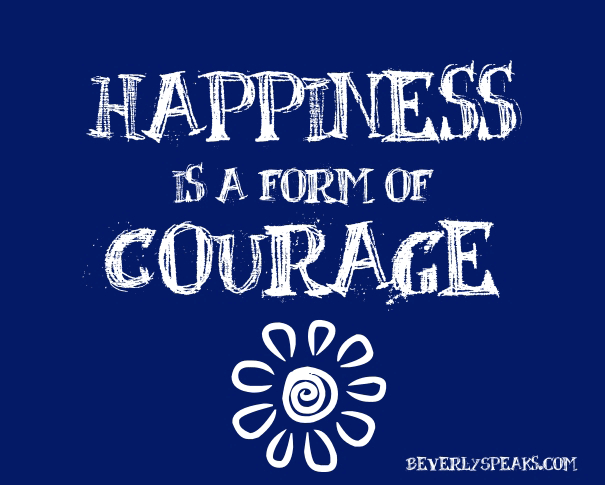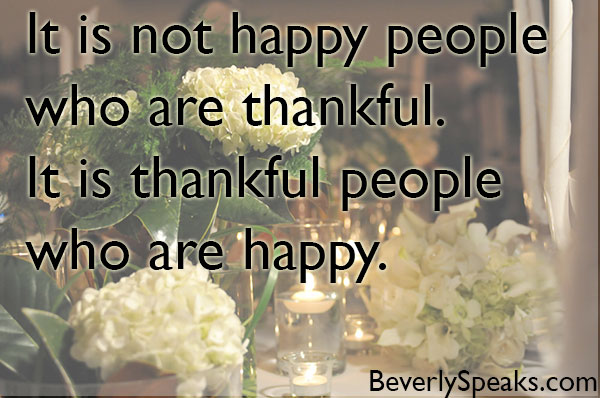
Remember when you graduated from high school and you just knew you were going to get what you wanted from life? You had optimism and time. Time to pursue your dreams, develop your talent and find that place where you would be loved, appreciated and valued. You thought by the time you got here, everything would be good and you would be happy.
Now you’re here. Your life might not look like what you had imagined. Maybe your car isn’t the coolest, your house isn’t grand, your tax liability hasn’t sent you searching for overseas investments. You have yet to write that screen play, build a multi-million dollar business, compose a hit song or be discovered.
Be happy anyway. Decades of research prove that when you figure out how to be happy, your chances for success in everything else skyrocket. Positive psychologists say:
90% of your happiness and 75% of your success depends on three things.
These three things are simple but not easy. It’s far easier to react to the stream of negativity that flows freely. Our world may be going to hell in a hand basket, but you can still be happy. It typically takes an intentional effort. Just like you can choose to exercise and eat well rather than dining on fast food while morphing into a couch potato. It’s your life – you choose.
True confession – I’m one of those happy people. But I have friends that are among the statistics that reveal anti-depressant use has increased 400% in the past two decades. 11% of Americans over the age of 12 take antidepressant medication. (Source: Centers for Disease Control) Did you catch that? Age 12 is when the numbers surge.
Even more alarming than those figures are the number of people who don’t get help and commit suicide. Suicide is the tenth leading cause of death in the general population with one suicide occurring every 13 minutes in the U.S. It’s the second leading cause of death for 15-24 year olds.
That is exactly why I talk about happiness so much. The fall-out from unhappiness goes deeper than the grumpy people you live and work with. Instead of waiting for happiness to happen to us, we need to make it happen. The good news is there are proven strategies that work!
“We either make ourselves happy or miserable. The amount of work is the same.”
–Carlos Castaneda
Seven Things Happy People Do Differently
In listing seven things happy people do differently, I’ll start with the three things mentioned above that are responsible for 90% of your happiness and 75% of your success.
1. Happy people have a high level of optimism. Our brains are hardwired to perform at their best when we are positive. Thus, it’s smart to implement habits that protect your ability to think optimistically. For example, I learned years ago that looking at the news first thing in the morning or last thing at night wasn’t healthy for me. Almost 100% of the time, the headlines are negative. That’s not to say I don’t keep up with world events, politics and local news. I do. But I control when I do it and it makes a huge difference.
Perspective is everything. I’ve always loved the story of the shoe salesman that was sent to a remote island to develop the territory. He returned to the corporate office dejected and complained, “there’s no opportunity – no one there wears shoes.” So the company sent a different salesperson and she returned months later with a record-breaking sales quarter. She explained that it was because of the amazing opportunity on that island – not one person owned a pair of shoes so everyone needed what she had.
2. Happy people cultivate a strong support network of family and friends. The studies on this characteristic describe this as a strong “social network”. This has nothing to do with how many friends you have on FaceBook, followers on Instagram or connections on LinkedIn. These people are the ones who really know you. The people you trust. Picture the faces of the ones you would call if you were thrown in jail in the middle of the night and needed someone to come get you. Yes – it’s most likely a pretty short list, but it’s an important list to have. We all need support – whether we are consciously aware of it or not.
3. The ability to see stress as a challenge rather than an obstacle is another key perspective that contributes to happiness. Learning to look for the lessons in what looks like failure is one way to change your way of seeing things. I’ve always held to the belief that every failure carries within it the seeds of an opportunity to grow and learn. Learning to lean into the winds of change instead of letting them batter you is a necessary life skill for happy people.
4. Anticipation is an important component of happiness. Happy people always have something to look forward to. Whether it’s lunch with a friend, the stack of books on your nightstand or the trip to a spectacular destination you’re planning for next year, anticipation of something positive in your future is powerful.
5. Happy people are grateful people. Gratitude turns what we have into enough. Keeping a gratitude journal costs nothing but a few moments of time on a daily basis but it can shift your world. One particular study by Emmons and McCullough on “Counting Blessings vs. Burdens: An Experimental Investigation of Gratitude and Subjective Well-Being in Daily Life,” indicates that spending a few hours writing a gratitude journal over a period of three weeks can create an effect that lasts at least six months.
6. Happy people smile more. Smiling is the highest positive emotional gesture in your repertoire. Neurotransmitters called endorphins are released when you smile – regardless of whether it’s a forced smile or a natural one. Researchers literally had subjects stick a pencil between their teeth to force the physiology of a smile and it created the same chemical response in the brain as a smile created by actual pleasure. The stress hormone, cortisol is reduced when you smile, so smiling is a good stress-management tool. Many smiles are started by another smile so it’s a simple way to pay happiness forward.
7. Happy people are kind to others and everybody wins. When you reach out to others and share your time, money or efforts, you feel good. Research by Paul Zak, founder of Claremont Graduate University Center for Neuroeconomics, proved that the brain releases dopamine when you are doing something positive for others. This hormone creates a warm glow that some refer to as a “helper’s high”. Kindness doesn’t need a reason, yet there are hundreds to cite.
Happiness is personal but the effects are far reaching. Happier people have better overall health and live longer than their less happy peers. They tend to volunteer more, display safer behavior and be more financially responsible than those who aren’t happy.
There you have just seven of a myriad of reasons to become intentional about cultivating happiness in your life. Happiness is not a destination but a manner of traveling.
P.S. If you’re ready to intentionally bolster your courage and happiness, you can sign up for my free series, Fresh Wind for the Soul. You will receive practical strategies and tips, along with encouragement on your journey. And did I mention a free trip to Florida? It may be virtual, but you’ll feel the breeze.
Let’s get started.

What a great post, Beverly! Thank you for sharing! So encouraging and practical in how to grow in a positive mindset…especially in today’s culture! So needed.
Thank you for your encouraging words, Nicole. I was rather surprised to get some heated criticism regarding the fact that I didn’t elaborate on the difference between happiness and joy. I think we’re meant to have both! I look forward to reading your books and learning more about your call. I see you have several books – which one do you suggest I start with?